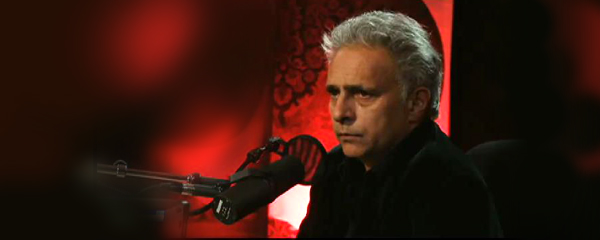
THRESHOLDS EXCLUSIVE – Intro to Collected Essays by Hanif Kureishi
Hanif Kureishi draws upon his thirty-year experience as a novelist, short story writer, playwright and screenwriter to offer, in this one volume, a wealth of compelling reflections on the writing life. In this THRESHOLDS Online Exclusive, we’re delighted to publish the unabridged Introduction to his new Collected Essays (Faber 2011).
***
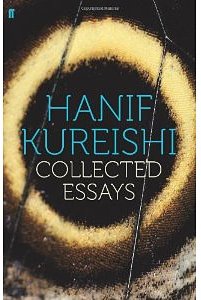 This collection begins in the early 1980s, and as far as I can recall, ‘The Rainbow Sign’ was the first essay I ever wrote. My then editor at Faber, Robert McCrum, had approached me about publishing the screenplay of My Beautiful Laundrette and suggested I write an introduction to it, since it might seem thin on its own.
This collection begins in the early 1980s, and as far as I can recall, ‘The Rainbow Sign’ was the first essay I ever wrote. My then editor at Faber, Robert McCrum, had approached me about publishing the screenplay of My Beautiful Laundrette and suggested I write an introduction to it, since it might seem thin on its own.
I’m not keen on reading screenplays myself; I can’t recall wanting to read one purely for pleasure, except for The Third Man. Certainly, when I write a screenplay, how it reads is not primary. A screenplay is more of a map than a work of art, and should show the director how he might get from here to there, while telling the actors what they should say.
In the 1980s Faber began to sell a lot of screenplays, particularly Tarantino’s. ‘The Rainbow Sign’ was an opportunity for me to think more about some of the issues raised in My Beautiful Laundrette and in the plays I’d written before that, which were concerned with race, class, sexuality and so on, questions provoked by my childhood and family situation, and which I couldn’t help continuing to try to formulate and think around. These were questions – particularly the ones around race – which, it seemed to me, contemporary artists were reluctant to engage with, as if they didn’t know where to begin.
Although I’d enjoyed the new extravagant and wild American journalism, a written version of rock ‘n’ roll, where, mostly, the writer appeared as a character and, inevitably, as the headline – Mailer, Wolfe, Hunter Thompson – I can’t say they set a good example. You couldn’t see the story for the star. I preferred the modest intensity of James Baldwin’s work. It seemed to me that he had more to say than the others, particularly about what it is to live in a society where one’s identity is always in doubt, if not under attack. (If other people have too many ideas about you it’s impossible for them to see you. You are both over-scrutinised and ignored.)
And anyhow, whatever else other writers were doing, what I wanted was to describe myself in terms of the country I lived in, Britain.
And anyhow, whatever else other writers were doing, what I wanted was to describe myself in terms of the country I lived in, Britain. Adolescents read partly to find others who understand their situation, who suffer as they do, and have similar sexual affects to them. But I had found very little in contemporary British writing which spoke for me. Immigration and social change was mostly off the agenda as a subject, and I was yet to begin my own account of being of mixed race, The Buddha of Suburbia.
‘The Rainbow Sign’, then, was an opportunity for me to consider some of these things, and to see if I could use the essay form expressively. After all, the writers I’d admired as a young man wrote essays as well as novels, stories, plays; it was part of the writer’s work to use forms which tested and extended him. He was a different kind of writer according to what he was attempting; he could say different things. The theatre I came from, and where I’d worked since I was eighteen, and whose tradition of acting, directing and writing I admired – the Royal Court in Sloane Square – had been committed since the mid-50s to exploring Britain’s post-war decline and the effects of the end of the empire, and what sort of renewal might be possible. It wanted to put the contemporary on stage. It recognised that without lively new voices the culture died.
I have wanted, too, to write about London, as so many others have done, and its fascination for me as a young man, particularly areas which were once considered louche, bohemian and ‘mixed’, and where, for a time after the war, the most lively people gathered, Chelsea, Notting Hill and Soho. These places have now become expensive and bland. Since the mid-80s and the construction of Canary Wharf, the centre of gravity of the city has shifted to the East, and it seems to me that I am once more living in a suburb. Luckily, there’s no community spirit or noticeable identity in Hammersmith, just immigrants moving in and out. People live here mainly because of its proximity to other places. But it’s as good a point as any in which to take the temperature of this massive, diverse city.
I had wanted to be a writer – to devote myself to words and story-telling – from the age of 14. I can remember the moment it occurred to me, one day at school, and how differently I felt about the world after – the door to the future opening. But I hadn’t given much thought as to how I would support myself, and later, a family. I seemed to believe that I’d get by somehow. The details didn’t matter, particularly since I made the decision to write in 1968 – a time when creativity rather than ‘bread’ was the key. And the writers I’d admired – Kafka, Beckett, Kerouac, Henry Miller, amongst others – hardly had ‘professional writer’ on their passports. They were artists, which was different, and none of them, to my knowledge, seemed concerned about the price of prams, or had children at private school – both of which, according to a rather arch idea of Cyril Connolly’s, were lethal for writers: “There is no more sombre enemy of good art than the pram in the hallway.”
Writing is as steady a job as any job can be. Routine makes the imagination possible. ‘Acting in’, you could call it, as opposed to acting out.
Perhaps, for some people, becoming an artist implies abandoning ordinary life for the excitement of bohemianism, but I can’t say I know many writers like that. Writing is as steady a job as any job can be. Routine makes the imagination possible. ‘Acting in’, you could call it, as opposed to acting out. Writers are envied because writing, or perhaps any form of art, is the most gratifying sublimation of all; it is one thing you don’t have to leave the house to do – warm but not impressive underwear being the only requirement, apart from some talent.
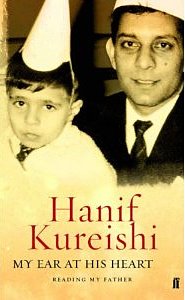 I guess I inherited the idea of ‘professionalism’ from my father, who is referred to often in this collection, as well as in my memoir My Ear At His Heart. His deepest wish was to write for a living rather than work as a clerk in an embassy, and he thought that being paid was a higher accolade, and a more dependable and useful form of praise, than a good review, something any writer would agree with.
I guess I inherited the idea of ‘professionalism’ from my father, who is referred to often in this collection, as well as in my memoir My Ear At His Heart. His deepest wish was to write for a living rather than work as a clerk in an embassy, and he thought that being paid was a higher accolade, and a more dependable and useful form of praise, than a good review, something any writer would agree with.
The piece of writing I usually most enjoy doing is inevitably the thing I’m not supposed to be doing, so it can seem illicit.
The piece of writing I usually most enjoy doing is inevitably the thing I’m not supposed to be doing, so it can seem illicit. I like to work on something over a long period, returning to it repeatedly, adding, subtracting and altering, and taking advice from editors and friends, until I can’t bear to look at it, which is when I guess it’s done. Writing is highly labour intensive. It takes a lot of time – and much patient toleration of boredom, frustration and self-loathing – to achieve anything. Then you try to sell something to the world it doesn’t know it needs.
George Orwell writes, with some baffled amusement, about people who just decide to write, without quite knowing what they might write about. No writer knows this, or would want to. He or she will probably be aware of some sort of impulse to speak, and will begin writing to explore, to discover – to create a self; it is a form of play more like a conversation than a programme. For me, the occasion of an essay is the opportunity to walk and think and dip into my library. It is an opportunity to continue to be a student – the finest thing in the world – and to try to find out if I have something to say. Writers often think of themselves, and are often characterised as, idlers, loafers or bums, since much of what we do takes place when we’re not working, in the unconscious, and in cafés. I can’t begin to tell you what hard work it is looking out of the window and wondering about your favourite pen, and which colour ink you prefer that day, but few will be convinced.
Nevertheless, loafing is always more generative than obsessive concentration. It wouldn’t be as if I knew in advance what I thought, particularly about the important subjects – writing, teaching, liberalism, and so-called religious fundamentalism. But I know I’m interested in the area where philosophy, literature and psychoanalysis crossover – the mind in the world. And I want to take the essential strangeness of the human being – both to himself and to others – as my subject.
More or less the whole of my formal education was concerned with enforced inhibition and constraint. I had to unfetter my imagination myself and learn to let it run.
At school in the 1950s and 1960s, the system wanted you to shut up; they had no 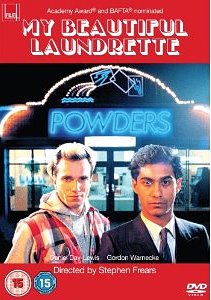 desire to hear from you. Creativity in the young, and their engagement with the new Pop, existed only in spite of the authorities. More or less the whole of my formal education was concerned with enforced inhibition and constraint. I had to unfetter my imagination myself and learn to let it run. It sounds awkward to say that you might train your imagination, but you might learn, at least, to hear what it has to say, and to respond.
desire to hear from you. Creativity in the young, and their engagement with the new Pop, existed only in spite of the authorities. More or less the whole of my formal education was concerned with enforced inhibition and constraint. I had to unfetter my imagination myself and learn to let it run. It sounds awkward to say that you might train your imagination, but you might learn, at least, to hear what it has to say, and to respond.
Since a period in the early 1980s when I found I couldn’t move forward with my work, I have used, in the morning, Freud’s method of free association, which he himself discovered, oddly enough, in a wonderfully titled writing manual by Ludwig Borne: The Art of Becoming an Original Writer in Three Days. I found I could create ideas and avoid anxiety by throwing words at the page at random – putting down whatever occurred to me – the same way I used dreams as a way of uncovering ideas and connections. My unconscious might know more than I did – it was quicker, funnier and more economical – but its emanations, which could be prolific, had to be organised and considered.
I was always aware that I wanted to make a living as a writer, since it implied a level of commitment and seriousness which was crucial to me. For a start, I wouldn’t have to wonder about what else I might like to do. It was the end of a certain kind of doubt. And vocational choices in the suburbs were limited, mostly to crime or clerking. I knew that the desire to make art and the desire to make money are only sometimes compatible. Oddly, the curious public is often more concerned about the writer’s routine than they are about how he actually gets food on his table, which is his major concern.
When I first began to write plays I was on the dole, and earned little money. Eight years after leaving university, I wrote a hit film and began to be surprised and a little overwhelmed at the number of cheques which turned up at my council flat. After all, I had nothing but myself to spend it on, and I wasted months wondering if I deserved it, or had truly earned it. If writing is, finally, a pleasure, and if you find that people envy you your vocation, you might wonder if you should be financially rewarded. But at last I decided to buy the most valuable commodity there is for a writer – time. I began the novel I’d always wanted to write. Being a screenwriter is always uncomfortable: the real artist in film is the director and, if you’re lucky, the actors will make the dialogue sound good. The novelist works alone. It’s all his responsibility.
I was working on a dull short story for which I’d earn a hundred pounds, if I were lucky – and anyway I was blocked on that. I wondered if we’d ever survive.
However, I recall a morning, ten years after this, when my eldest sons were babies. They were playing with their au pair; an underpaid illegal immigrant was cleaning the house. Later, a no-doubt ruinously expensive man was coming to fix the central heating, and I was working on a dull short story for which I’d earn a hundred pounds, if I were lucky – and anyway I was blocked on that. I wondered if we’d ever survive. (We did, but I had to concentrate, particularly in the afternoons.)
Since then, as with most writers, there have been numerous dips and surges, and, I guess, it’ll continue that way. I’ve written at least one book, my first novel The Buddha of Suburbia, which has remained in print world-wide for twenty years and provided a steady if not spectacular income. (An author should write at least one work the title of which the general public will remember and associate with him.) However, it’s almost impossible for most writers to predict what they will earn in a year’s time, let alone in five years. Perhaps this is a common writer’s fear and wish, that he’ll run out of money and will have to do something else. I have many fears, among them that I will run out of paper, and also that I’ll never finish anything, my computer being filled with incompleted pieces.
The position of the writer has altered a lot during the period I’ve been writing. In the 1980’s small, individual publishing houses were bought by conglomerates, and advances increased hugely for some writers. Where before publishers could only afford relatively modest advances, some became extravagant and, luckily for some writers, even foolish. The publisher might have justified having the writer on their list in order to add weight, or respectability, or excitement. But the problem with a large advance is how much publicity and press the writer might have to do attempting to pay it off – not that he would be compelled to. However, next time the advance could well be lower.
I must give at least one interview a week, and I don’t mind it much, unless the journalist calls me irritable, or diminutive. It does mean that the questions and the answers will always seem pre-packaged, although they may appear to be new to someone somewhere. If you are asked the same question repeatedly, you either sulkily refuse to answer it, or you are forced to find ways to make it appear interesting – mostly to yourself. Over a period of time, in interviews, you work up an account of yourself, then you develop it and one day you find you even believe it; finally it has become the story of your life.
The problem with being interviewed is that, on the whole, the two people are at cross-purposes. One wants to flog a few copies of their new book at full-price and escape without personal injury, while the other wants to find out something new, and perhaps shocking, about the subject, which they will then inform the world about under a lurid headline. Fortunately both are usually disappointed. At the end, you always ask yourself, how many people are there who can only sell their product by also selling a part of themselves?
Some writers choose the written word because they find it difficult to speak directly; many writers are in love with solitude. Whichever it is, good writing should resist interpretation, summary and the need for applause.
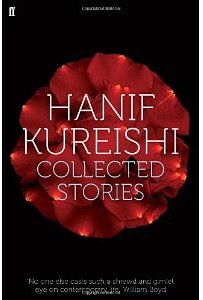 These days you can’t put a cigarette paper between a writer and a performing flea. There is far more publicity, and more media than before. Critics and reviewers have less influence, as do individual newspapers. Every year there are new festivals, and occasions for writers, accompanied by an army of PR girls with clipboards, to display their work and their bodies, meeting readers and scratching in the front of their books. For a writer there are few sights more heartening than that of a long line at a book signing, and few experiences worse than sharing a table with a writer whose queue stretches outside the tent. Writing has almost become part of light entertainment, a form of cabaret. Some writers are good at this form of speaking – being adaptable and cheap, I have come to enjoy it. But many writers don’t. There’s no connection between being able to write and being able to explain your work in a rain-swept tent to an audience staring at you like hungry animals contemplating a suspect steak. Listening and reading are different experiences. Reading, writing for a reader, and being read, are intimate acts, and there’s something about trying to articulate what you’ve done that can flatten and reduce it, horrifyingly so. Some writers choose the written word because they find it difficult to speak directly; many writers are in love with solitude. Whichever it is, good writing should resist interpretation, summary and the need for applause.
These days you can’t put a cigarette paper between a writer and a performing flea. There is far more publicity, and more media than before. Critics and reviewers have less influence, as do individual newspapers. Every year there are new festivals, and occasions for writers, accompanied by an army of PR girls with clipboards, to display their work and their bodies, meeting readers and scratching in the front of their books. For a writer there are few sights more heartening than that of a long line at a book signing, and few experiences worse than sharing a table with a writer whose queue stretches outside the tent. Writing has almost become part of light entertainment, a form of cabaret. Some writers are good at this form of speaking – being adaptable and cheap, I have come to enjoy it. But many writers don’t. There’s no connection between being able to write and being able to explain your work in a rain-swept tent to an audience staring at you like hungry animals contemplating a suspect steak. Listening and reading are different experiences. Reading, writing for a reader, and being read, are intimate acts, and there’s something about trying to articulate what you’ve done that can flatten and reduce it, horrifyingly so. Some writers choose the written word because they find it difficult to speak directly; many writers are in love with solitude. Whichever it is, good writing should resist interpretation, summary and the need for applause.
A lot of writers, of course, work as teachers, for money, pleasure and distraction, and I write in this collection about the importance and place of teaching, how useful it is and what idiocy it can encourage. It has been said that at least two percent of the population is writing a novel; apparently that number is rising. There’s been a gigantic increase in the number of writing courses available, both in universities and other institutions. Many of these students can only become teachers themselves, and I am sceptical of professional creative writing teachers. The most helpful teachers are usually ‘real’ writers who see working with students as part of their work. Scarcer is practical and realistic advice for young writers, particularly about how difficult it is to make a consistent living. Any artist has to exist in some functional relation to the real world. Of my students, the film students are the most knowing and pragmatic, since to work in film at all is to be faced continuously with questions of budgets and time.
Writers are mad and promiscuous, if they’re lucky; they make people up for a living, give them something to say, enter their minds, toy with them and often ruin their lives. One might like to think of oneself as a realist, but a good proportion of the important world is insubstantial, being made up of dream, fantasy, paranoid projections and the imagination. The only figure which comes close to showing the whole chaotic caboodle is literature.
But if a novel is concerned with numerous voices, and wants to keep them in play until the dispute is done, an essay is a monologue, a form of direct speech, and a whisper at that. The essay is as flexible a form as a story or novel; it is amenable to most forms of content. It can be as intellectual as Roland Barthes, Adam Phillips or Susan Sontag, as informal and casual as Max Beerbohm, or as cool and minimalist as Joan Didion. Unlike academic writing, the essay is usually written for the general or ‘common’ reader rather than for experts or students; for someone in a deck chair rather than at a desk. There should neither be footnotes nor much information in an essay; as a form, it is a meditation rather than an act of persuasion – though Robert Louis Stevenson’s fine essay An Apology for Idlers has encouraged me, as it should, towards a greater indolence: “Perpetual devotion to what a man calls his business, is only to be sustained by perpetual neglect of many other things.”
I like to be surprised by what I write, and sometimes I even laugh at what comes out. I am my own first reader, and if I enjoy something, the reader might too.
Idleness may be the midwife of art, but the desire to write has not diminished in me over the years. If anything, it has increased. There is still that daily pressure to achieve something true, or at least put down a few words. Or, best of all, to have a good idea before bedtime which takes the work forward. I like to be surprised by what I write, and sometimes I even laugh at what comes out. I am my own first reader, and if I enjoy something, the reader might too.
I often wonder if I haven’t said it all by now; I’d be happy to say it all again at half the price, but one doesn’t stop developing, burying old selves, seeking new difficulty and resistances in the material, and wanting to pin words to things. I’m not sure any writer gets over feeling clumsy, or, at times, over-facile. There are things he will never be able to get right, things he’ll want to work on. Ageing writers slow down, they read more, and struggle with despair. But there are few artists who have the desire to give up their creativity as they decline. It is always exciting to have a good idea. The end of a life is as interesting as the beginning. If anyone asks a writer which of their pieces are their favourites, the answer can only be the one to come.
– Hanif Kureishi
All rights reserved
© Hanif Kureishi, 2011
Permission: courtesy of Hanif Kureishi
Buy Collected Essays from Amazon UK
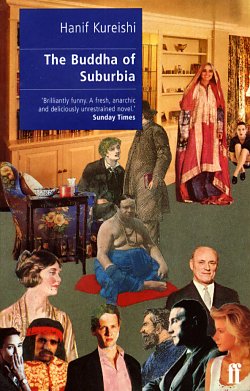


Hi Dora,
Just a quick note: Hanif Kureishi sends his thanks for your comments.
all the best,
Alison
Thanks for the post. Mr. Kureishi has touched upon so many of my own preoccupations with the writing life, that I feel he’s written the introduction exclusively for me. Being an immigrant myself, I’ve also struggled with finding other writers who spoke of my experience. The closest I found were the Southern writers such as Eudora Welty and Flannery O’Connor, to name a few. Unfortunately instead of embracing my differences, I found myself disparaging them and I almost gave up. I’m proud to say I persevered, struggling against my family’s view of me as wasting my life away and coming to a bad end. I’m happy to say neither happened!
I am still hard at work translating my vision some twenty years later and even if no one reads it, I am proud of it. It has been a constant struggle to co-exist on so many multiple levels: as a writer, mother, employee, and friend, but I wouldn’t have it any other way. Most importantly I’ve finally found my voice.
As Mr. Kureishi plainly states, ‘Writing is highly labour intensive. It takes a lot of time – and much patient toleration of boredom, frustration and self-loathing – to achieve anything. Then you try to sell something to the world it doesn’t know it needs.’ This needs to be said, over and over again. In my fantasy I think that if one is a published writer, the words and ideas will simply flow at will. Thanks again for showing me that I’m not ‘mad’ for following this writing life and that there are others out there like me.